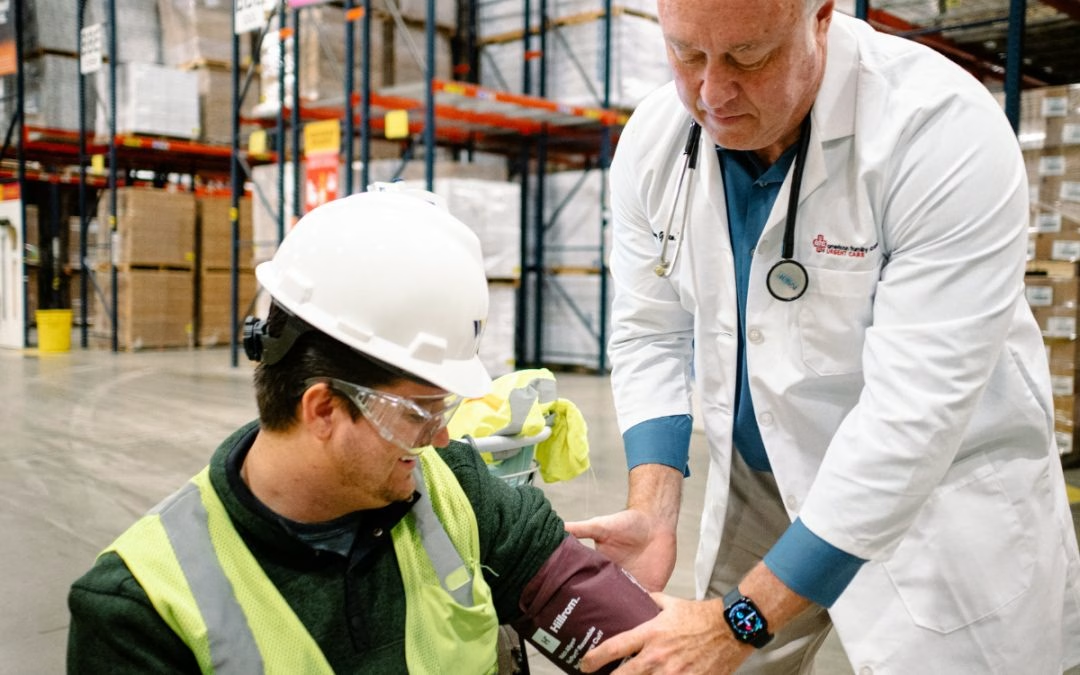
As a parent, noticing unusual symptoms in your child can be alarming. One common viral infection that often raises concerns is Hand, Foot, and Mouth Disease (HFMD). Particularly prevalent among young children, HFMD is typically mild but can be uncomfortable and concerning. In this blog post, we’ll explore what HFMD is, its signs and symptoms, how long it lasts, treatment options, and when you should seek medical care at AFC SW Charlotte. Read on to discover how to help your child get back to the activities they love most.
What Is Hand, Foot, and Mouth Disease?
Hand, Foot, and Mouth Disease is a contagious viral illness most commonly caused by coxsackievirus. It primarily affects children under 5 years old, but it can also occur in older children and adults. HFMD spreads easily through close personal contact, respiratory droplets, and contaminated surfaces, making it common in daycare and school settings.
Signs and Symptoms of HFMD
Recognizing the signs and symptoms of HFMD is crucial for timely care. The illness typically presents with the following symptoms:
- Fever: The initial symptom is often a mild to moderate fever that can last for a few days. This may be accompanied by a sore throat and a reduced appetite.
- Mouth Sores: Painful sores can develop inside the mouth, particularly on the tongue, gums, and inside of the cheeks. These sores can make it difficult for children to eat or drink, leading to potential dehydration.
- Rash and Blisters: After the fever, a rash usually appears on the hands and feet, as well as sometimes on the buttocks and legs. The rash can manifest as red spots or small, fluid-filled blisters, which can last for about 5 to 7 days.
General Discomfort: Children may feel irritable, fatigued, or uncomfortable during the illness, which can be distressing for both the child and the parents.
How Long Does HFMD Last?
Most cases of HFMD resolve within 7 to 10 days. The duration includes the body’s process of fighting off the virus and the gradual disappearance of symptoms. Initially, the fever lasts for 2 to 3 days, followed by the development of mouth sores and rashes.
While HFMD symptoms are generally mild, some children may experience more severe discomfort. It’s important to keep an eye on their hydration and nutrition during this period.
Treatment Options for HFMD
Currently, there is no specific antiviral treatment for HFMD. Instead, care focuses on managing symptoms and providing relief. Here are some effective ways to help your child feel more comfortable:
- Pain Relief: Over-the-counter medications, such as acetaminophen or ibuprofen, can help reduce fever and alleviate pain from mouth sores. Always follow the dosage instructions on the medication label.
- Hydration: Keeping your child hydrated is crucial, especially if mouth sores make drinking painful. Encourage them to sip water, cold milk, or eat ice pops. Avoid acidic or spicy foods that could irritate mouth sores.
- Rest: Encourage your child to rest as much as possible. This allows their body to conserve energy and fight off the virus effectively.
When to Seek Medical Care at AFC Urgent Care
While HFMD is usually a mild illness, there are circumstances where medical attention is necessary:
- Persistent Symptoms: If your child’s symptoms last longer than 10 days, it’s advisable to seek medical evaluation.
- Signs of Dehydration: Look for signs of dehydration, such as a dry mouth, lack of urination, or extreme fatigue. If your child is unable to drink fluids due to painful mouth sores, contact a healthcare provider.
- High Fever: If your child develops a high fever (over 102°F) or exhibits severe pain, a healthcare professional can assess their condition to rule out complications.
Hand, Foot, and Mouth Disease is a common yet manageable viral infection that can cause discomfort for both children and parents. By understanding the symptoms, duration, and treatment options, you can help your child recover more comfortably. If you have concerns or if symptoms persist, don’t hesitate to visit AFC SW Charlotte. Our team is here to provide compassionate and effective care to ensure your child’s health and well-being.


